Early literacy begins with conversation
How responsive relationships build reading readiness from day one
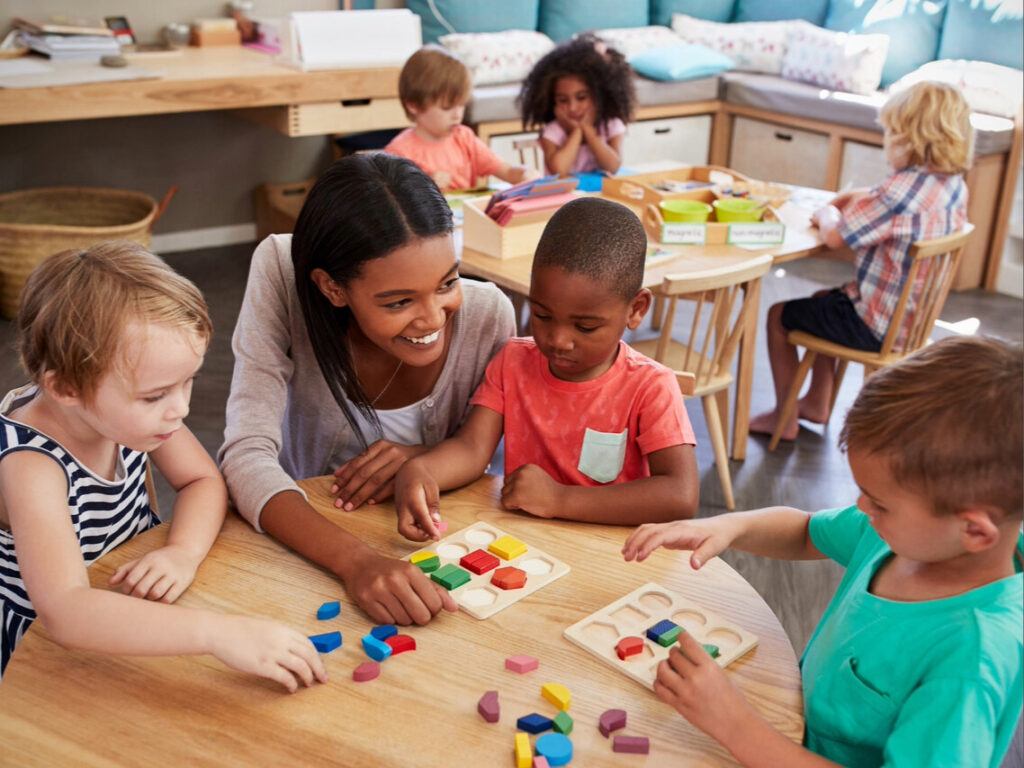
Why the First Five Years Matter
90% of brain growth happens before kindergarten. Conversational turns — just simple back-and-forth interactions between a child and an adult — are a huge part of this growth.
During these years, children develop the early literacy skills that become their foundation for:
- Understanding how books work
- Recognizing that letters make specific sounds
- Building vocabulary
- Playing with the sounds in words
- Learning letter names and shapes
- And even writing!
Literacy Development in Action
Wondering what we’re talking about when we say “early literacy skills”? Check out some examples of what they look like in action:
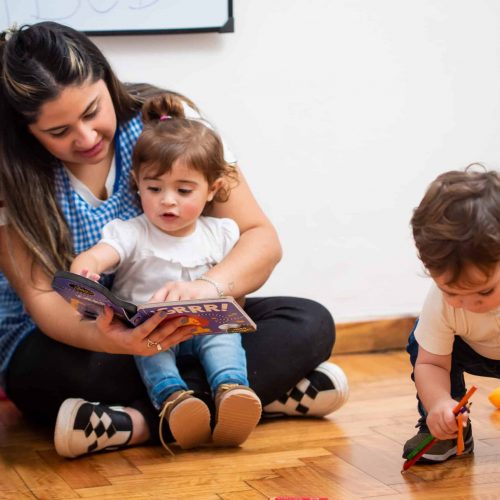
For Infants
(0-12 months)
- Communicating through cries, coos, and babbles
- Using gestures and movement during songs and rhymes
- Reaching for and exploring books with their hands and mouth
- Starting to produce consonant sounds
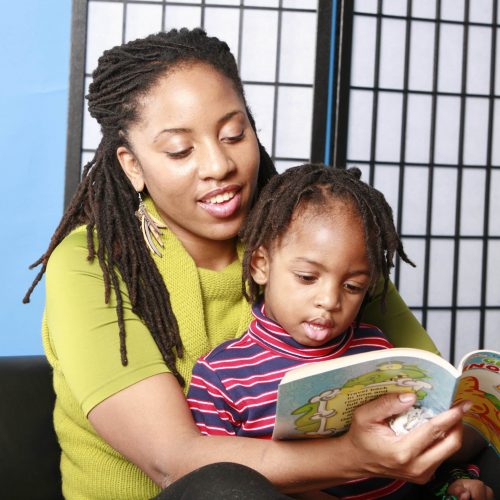
For Toddlers
(1-3 years)
- Learning new words regularly
- Noticing that printed words have meaning
- Beginning to tell simple stories
- Scribbling with purpose

For Preschoolers
(3-5 years)
- Noticing how words sound and rhyme
- Recognizing some letters and their sounds
“Reading” familiar books from memory - Writing letter-like shapes and some actual letters
Setting Children Up for Success
Many educators aren’t trained specifically in early literacy development. And many have learned to teach older children. What works for older children simply doesn’t work for young ones. So what does work?

Instruction should sound like children are talking and engaging. If they can hear you and learn how to ask the right questions and tie stories together, that IS early literacy.
– Dr. Nicol Russell

Children need more conversational turns
Children don’t just need to hear words. They need responsive relationships.
Every serve and return interaction between a child and adult strengthens the brain connections that support reading and writing.
Here’s what the research says: Children who experience more of these back-and-forth conversations show:
- Larger vocabularies
- Better reading comprehension
- Stronger phonological awareness
- Enhanced storytelling abilities
- Greater kindergarten readiness
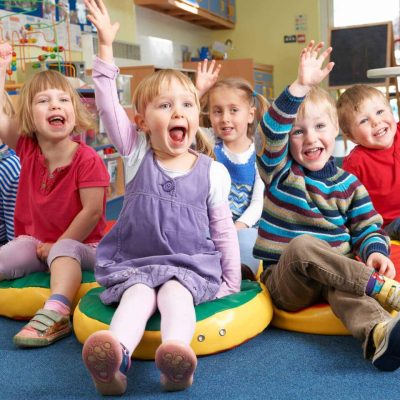
Effectively Supporting Early Literacy
Early literacy development is too important to leave to chance. Here are some proven methods to support early literacy skills:
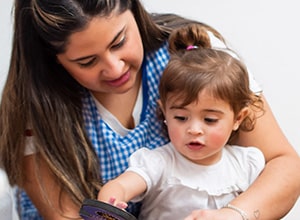
Make storytime an adventure with questions, discussions, and following children’s interests.

Create spaces filled with books, labels, and opportunities to engage verbally.

Develop literacy naturally through games, songs, and imaginative play.

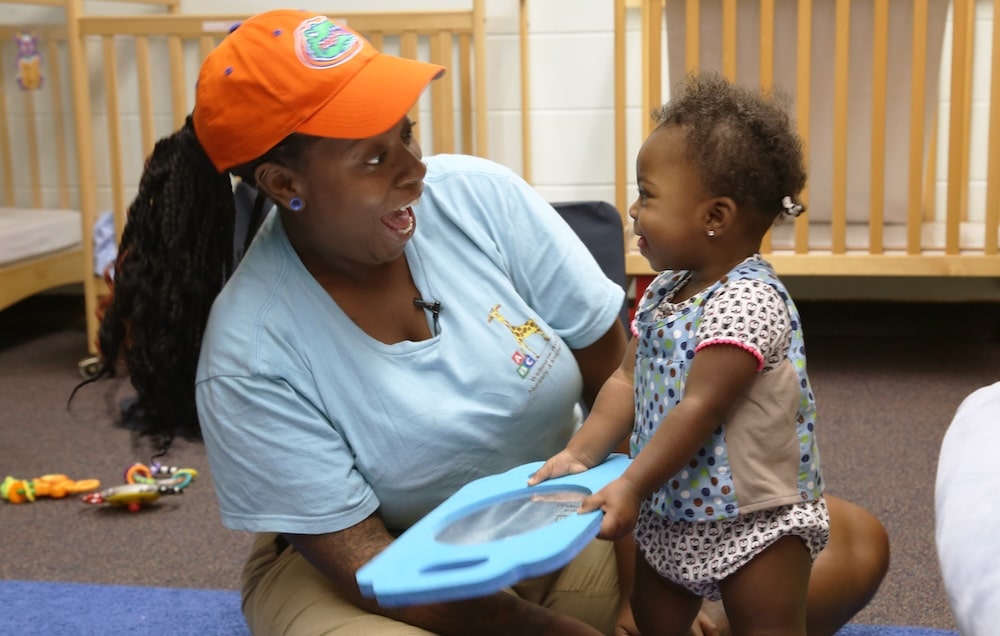
Measuring What Matters in Early Childhood
In today’s world, we can measure what matters and use that information to help children develop better literacy skills in early childhood.
LENA’s professional development program measures the back and forth conversations children experience with adults throughout the day. This program:
- Shows teachers and caregivers where they’re already strong
- Identifies opportunities to talk more
- Guides improvements that really work
- Tracks progress over time
The result? Children experience more brain-building conversations, and adults gain confidence in their ability to support every child’s development.
Transforming Early Literacy Outcomes Through Conversation
When educators focus on increasing serve and return conversations, children develop stronger literacy skills. With tools like LENA Grow, they gain confidence and see measurable results.
Children who participated in LENA Grow showed greater improvements in literacy scores and entered kindergarten better prepared than their peers.
Resources to Support Early Literacy
Early literacy development is too important to leave to chance. Here are some proven methods to support early literacy skills:
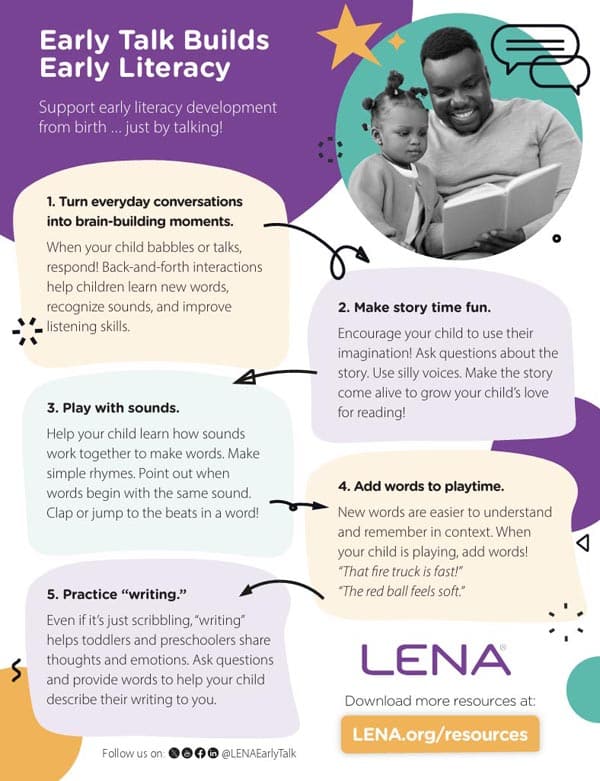
Early Talk Builds Early Literacy
Support early literacy development from birth … just by talking!
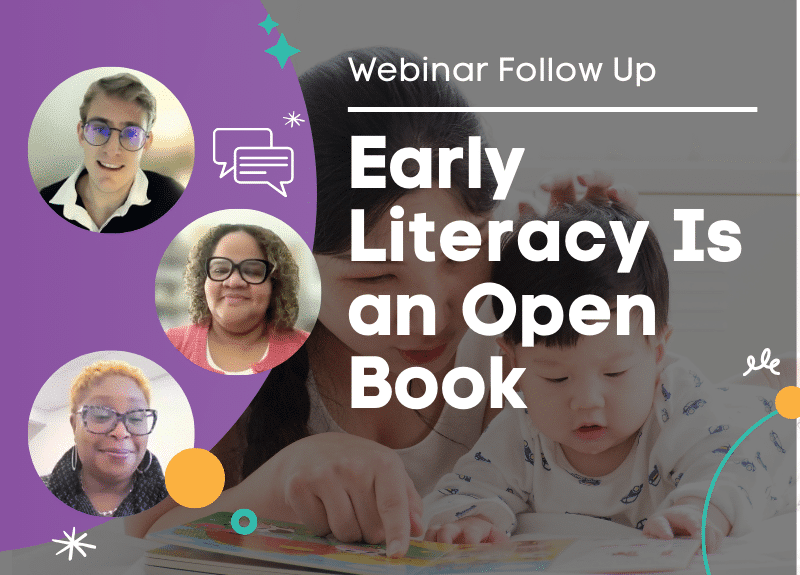
Early Literacy is an Open Book: Webinar Highlights
When does a child start learning to read? In “Early Literacy Is an Open Book,” experts shared how early literacy shapes success in early childhood education and beyond.
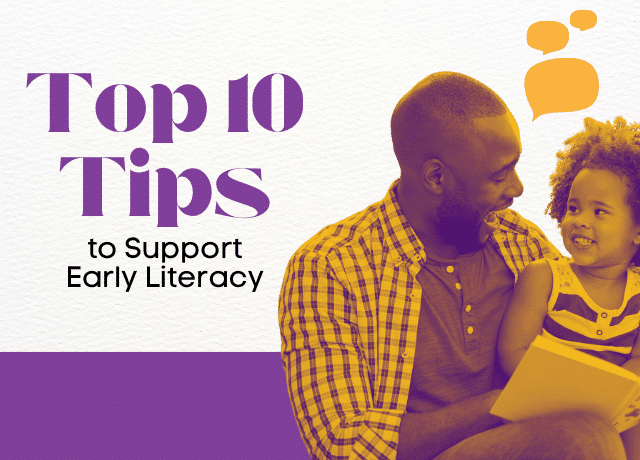
10 Simple Ways To Support Early Literacy: A Guide for Caregivers and Educators
Whether you’re a caregiver or educator, you already have everything you need to nurture early literacy skills.